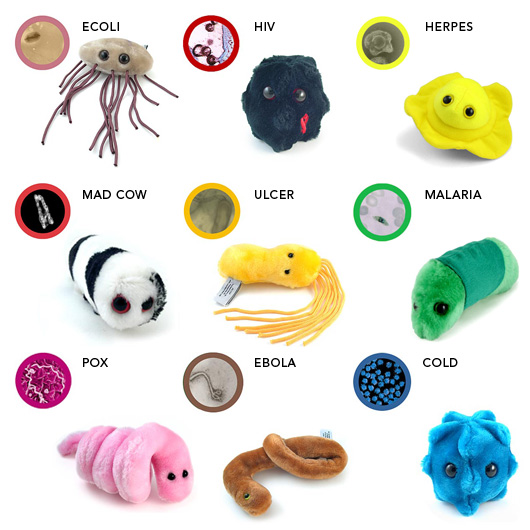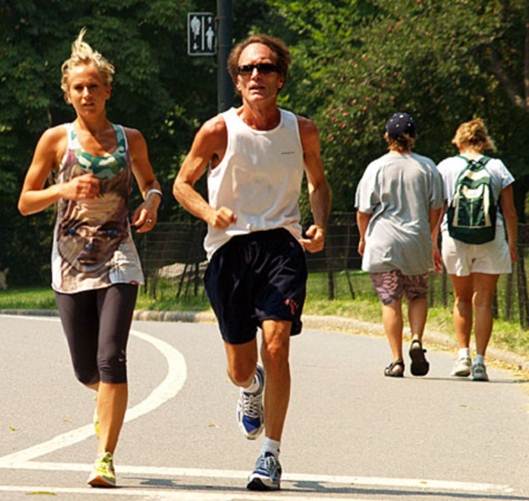Now change the way you live
Micro-organisms, such as bacteria, fungi,
archaea and protists, live in and around us all the time. You get helpful and
harmful ones but the harmful ones, which cause the conditions for disease, only
flourish when we experience emotional, physical or mental stress to our system.
Micro-organisms
Try these immune-boosting tips to keep
common stress culprits at bay:
1. Press the snooze button
Dozens of studies support the notion that
sleep is just as important for maintaining good health as diet and exercise.
“When we sleep, our body helps repair and
rebuild cells more efficiently,” says Len Saunders, author of Keeping Kids Fit
(LaChance Publishing). “So this will help strengthen our immune system to fight
sickness and disease.”
2. Ready your flu-fighting grocery list

If
we want to be "healthier"eat less processed food
Eat the least amount of processed foods
possible. The worse your diet, the worse your body’s ability to repair and
recover. Use this nifty immune-boosting food list to ensure a winter-healthy
shopping basket:
·
Protein: Pork tenderloin, brazil nuts, oily
fish, lean beef.
·
Fruit: Apples, strawberries, cranberries, tomatoes,
pineapple.
·
Vegetables: Broccoli, onions, horse-radish,
mushrooms, carrots, avocado.
·
Other: Oats, honey, cayenne, legumes.
Follow the 7-day immune-boosting meal plan
at shapemag.co.za
3. Wash your hands
Wash them before eating and after coming
into contact with people who are sick. Yes, it’s one of the most obvious and
simplest tasks but it’s one of the best prevention tools – even hospitals use
it! And, according to a recent study from the University of Michigan (US),
masks and hand hygiene could cut the spread of flu-like symptoms by up to 43
percent.
“Wash your hands regularly. This is a
powerful infection-control strategy” – Dr Charl Van Loggerenberg, director for
international SOS.
4. Work it out

Moderate exercise – that is 30 minutes
three or four times a week – is a great strategy for preventing colds and flu.
But don’t push too hard. If you’re already
under emotional stress and your training is unusually prolonged and intense,
your risk for illness and infection goes up. (And if you do get sick, keep your
contagions away from the gym, and don’t work out at all if you have a fever.)
5. Get to the root
Herbs like echinacea, ginseng and garlic
are excellent immune boosters.
- Echinacea increases
your body’s power to fight off colds and flu. It’s most effective when
used just as those nasty cold and flu symptoms start taking hold.
How to use it: Take it as a herbal
supplement, concentrated drops in water or you can buy echinacea teas.
- Ginseng
improves general immunity against infections and also supports the body
during stressful times, says Dr van der Merwe.
How to use it: You can get 500mg ginseng
capsules, or cut up pieces of root into your soup. But it’s best to consult
your doctor or local herbalist to see how much you need and how to use it.
- Garlic has
sometimes been described as a “miracle” medicine because it contains more
than 20 antiviral, antifungal and antibacterial substances – and it serves
as a wonderful natural antibiotic.
How to use it: Use garlic generously in
cooking, crushing the cloves to release the pungent phytochemicals. Chew on
fresh parsley to help neutralize “garlic breath”
6. Avoid crowded, dry, smoky, hot places
“Your environment can increase your chances
of getting flu, so beware,” advises Dr Van der Merwe. “Turn off the air
conditioners and heaters to allow the air to humidify. Dry air and smoke
irritates your mucous membranes and this may lead to catarrh – an inflammation
of the mucous membranes in your airways”
7. Drink more H20

When German researchers had 14 volunteers
drink two cups of water, their metabolism jumbed 30 percent after 40 minutes –
and stayed at a higher rate for an hour. Even mild dehydration will slow your
metabolism by as much as three percent.
8. Practise a relaxation technique
“Stress hormones, like cortisol, can put a
damper on your metabolism,” says Mark Hyman, author of Ultra-Metabolism
(Scribner). When your day starts to get difficult to cope with, close your eyes
and take five deep breaths into your belly to reduce rising stress levels.
9. Keep yourself happy

The immune system takes many of its cues
from our thoughts and feelings, so try to keep your outlook upbeat. Years ago
Mayo Clinic researchers found that optimists tent to live 12 years longer than
pessimists. And a more recent study by psychologist Anna Marsland from the
University of Pittsburgh Medical Centre (US) found that people who were
negative, moody, nervous and easily stressed had a weaker immune response to a
vaccination than their more positive peers.